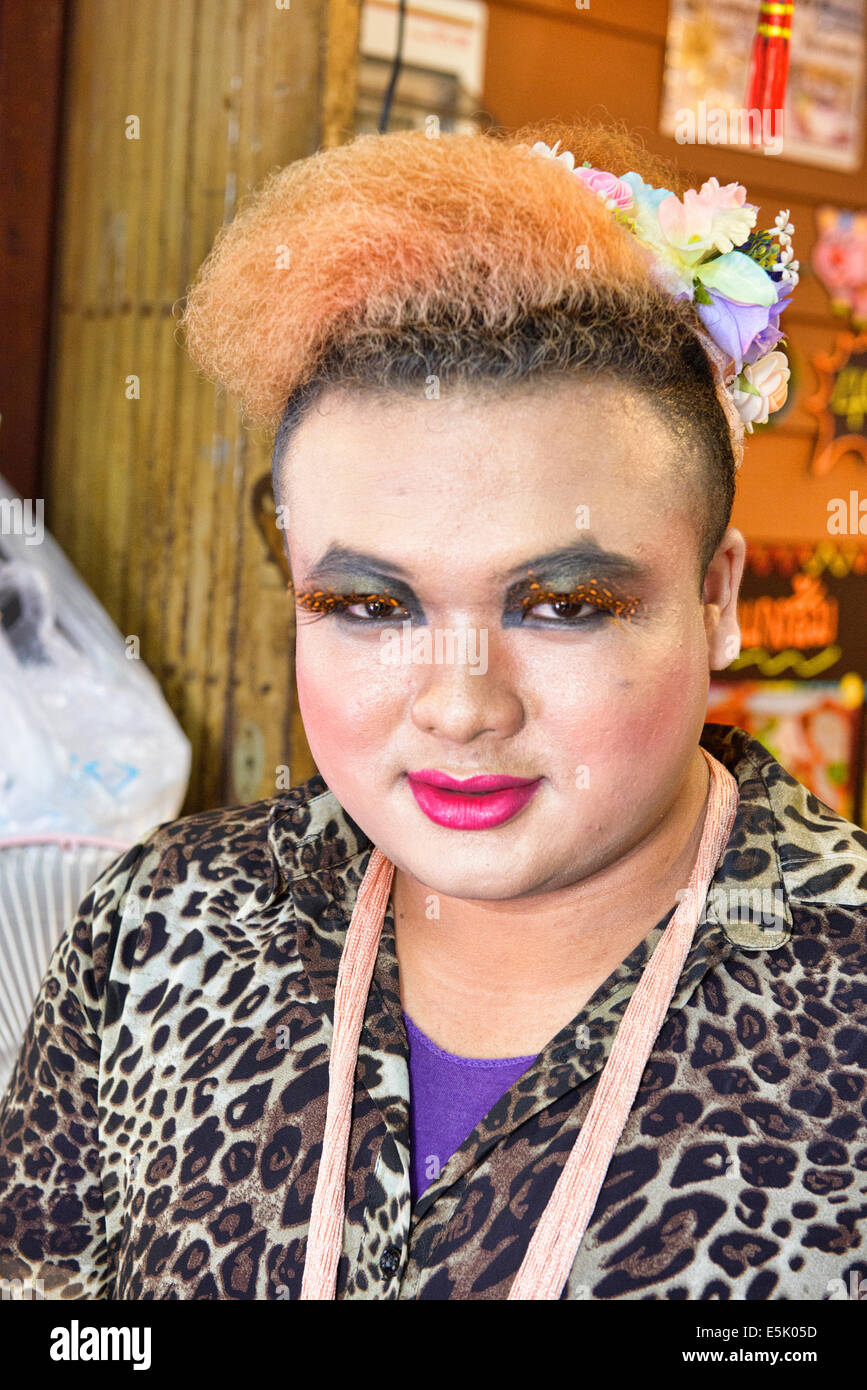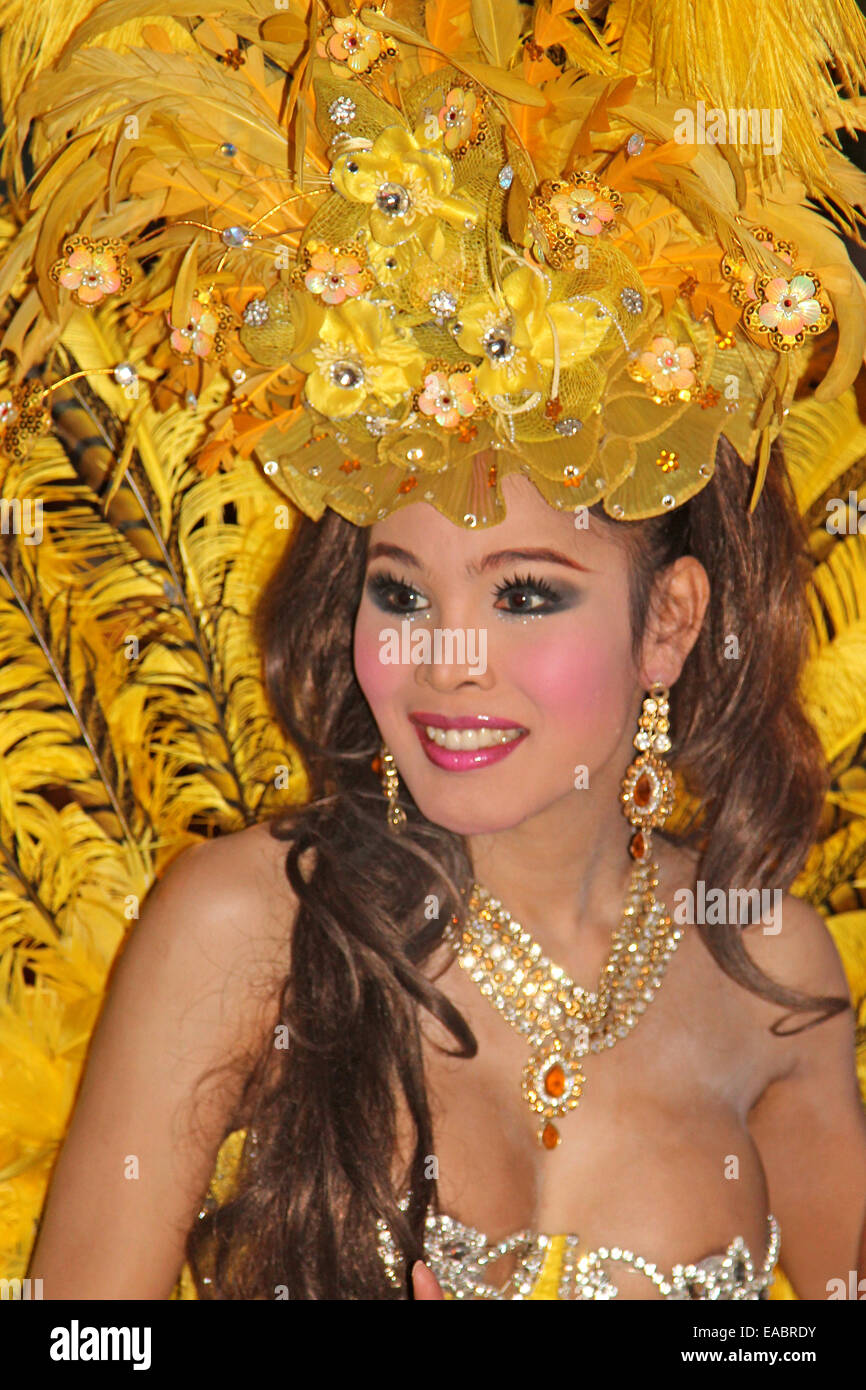Ladyboy Identity: Unveiling Stories From Thailand To Bahrain
The term "ladyboy" often conjures images of vibrant cabaret shows and the bustling streets of Southeast Asia, particularly Thailand. These exotic, beautiful women from Southeast Asia are often objects of fascination for many, from men who are aroused by their unique gender status to wide-eyed tourists captivated by their grace and charm. But beyond the well-known narratives of Thailand, a compelling question arises: what about the experiences of transgender women, or "ladyboys," in other parts of the world, specifically in regions with vastly different cultural and social landscapes, such as Bahrain?
This article delves into the multifaceted world of ladyboys, drawing insights from personal accounts and observations primarily from Thailand, to explore the broader concept of gender identity and its expression across diverse cultures. While specific public narratives about ladyboy Bahrain may not be as widely documented as those from Southeast Asia, understanding the experiences and challenges faced by transgender women in one context can illuminate the potential realities and nuances in another. We aim to foster a deeper appreciation for the journeys of transgender individuals globally, emphasizing empathy and informed understanding.
Table of Contents
- The Phenomenon of Ladyboys: Origins and Fascination
- Life as a Katoey: Personal Narratives from Thailand
- Social Integration and Public Life
- Transgender Rights and Challenges: A Global Perspective
- The Concept of "Ladyboy Bahrain": Navigating Identity in the Gulf
- Cultural Nuances and Understanding Gender Identity
- Supporting Transgender Communities Worldwide
The Phenomenon of Ladyboys: Origins and Fascination
The term "ladyboy," or "katoey" (กะเทย) in Thai, refers to transgender women in Thailand. They are often celebrated for their beauty, grace, and unique presence in Thai society, particularly within the entertainment industry. This fascination extends globally, drawing attention from various individuals – from men who are aroused by their unique gender status to wide-eyed tourists captivated by their performances and everyday lives. The cultural acceptance, albeit often nuanced and complex, of katoey in Thailand has allowed for a relatively visible community, fostering a unique social dynamic that sparks curiosity and discussion worldwide.
This visibility has led to countless stories and explorations of their lives, providing a rich tapestry of experiences that are both unique to Thailand and resonate with universal themes of gender identity and self-discovery. However, the very distinct cultural context of Thailand makes one ponder how such identities are lived and perceived in vastly different environments. This global curiosity naturally extends to regions like Bahrain, prompting questions about the existence and experiences of transgender women in such contexts.
Life as a Katoey: Personal Narratives from Thailand
To understand the lived experiences of transgender women, it's invaluable to turn to personal narratives. In northern Thailand, for instance, stories like that of Jira offer profound insights. Over the next few weeks, getting to know Jira better and hearing more about her life as a ladyboy or katoey in northern Thailand, revealed a journey marked by both resilience and daily challenges. She kindly agreed to record some of our conversations, providing a window into the realities of her existence. These narratives often highlight the deeply personal aspects of their transition, the societal pressures they face, and their pursuit of authenticity.
Daily Regimen and Hormonal Needs
A significant aspect of many transgender women's lives, including katoey, is the commitment to a daily regimen that often includes hormone therapy. This is not merely a cosmetic choice but a fundamental part of affirming their gender identity and aligning their physical appearance with their inner self. However, this comes with its own set of challenges. Being a ladyboy without a job and needing to earn money to buy food and the necessary hormones to keep up their daily regimen is clearly doubly difficult. This highlights the economic vulnerability many transgender individuals face, where the very means of affirming their identity are tied to financial stability, which can be elusive.
The cost and accessibility of hormones vary significantly across countries. In Thailand, hormones might be more readily available, though still a financial burden. In a place like Bahrain, the landscape could be entirely different. Access to gender-affirming healthcare, including hormone therapy, would likely be governed by different legal and medical frameworks, potentially posing greater hurdles and financial strain for transgender individuals seeking to transition.
Physicality and Self-Perception
Physical transition is a deeply personal journey, and for many transgender women, breast development is a key aspect of this. One of the most popular posts on TGForum, a community for transgender individuals, is Dana Bevan's post on breast development. Each week, many trans women who are interested in growing their own breasts seek information and support. This reflects a common desire to achieve a feminine physique that aligns with their gender identity.
The question of "were they somehow differently endowed than modern women?" often arises, reflecting a societal curiosity about the biological aspects of transgender identity. However, the focus for transgender individuals is less about inherent biological differences and more about the active pursuit of gender affirmation through various means, including hormones and, for some, surgical interventions. This pursuit is central to their self-perception and overall well-being. The cultural and social environment in which this pursuit takes place significantly impacts its feasibility and the individual's mental health. In a region like Bahrain, where societal norms are more conservative, the journey of physical transition might be undertaken with greater discretion and face different forms of social scrutiny or acceptance.
Social Integration and Public Life
The social integration of ladyboys in Thailand is a complex tapestry. While they are visible and often celebrated in certain spheres, everyday life can present its own challenges and unique interactions. Christine, a correspondent in Thailand, recounts a dinner with friends, including two cisgender women ("GGs") and a Thai ladyboy. After dinner, the conversation turns to what the ladyboys outside of Thailand are like, and Christine's observations highlight the curiosity surrounding their lives beyond the familiar Thai context. This very question opens the door to considering the experiences of transgender women in places like Bahrain, where the social fabric is vastly different.
From Cabaret Stages to Everyday Professions
Many ladyboys gain initial visibility through the vibrant cabaret scene, particularly in tourist hubs like Pattaya. Today, Christine Burr, our correspondent in Thailand, talks with a former star of the ladyboy cabaret scene in Pattaya. This individual, once a dazzling performer, now works as a makeup artist and is lucky to have a stable profession. This transition from entertainment to more conventional employment speaks to the aspirations of many transgender individuals for stability, respect, and integration into mainstream society.
The journey from a highly visible, often objectified role to a respected profession underscores the desire for a dignified life beyond stereotypes. In a country like Bahrain, where the entertainment industry for transgender individuals is virtually non-existent or highly discreet, the pathways to employment and social acceptance for transgender women would be entirely different, likely more challenging, and less visible. The societal expectations and legal frameworks would significantly shape their professional opportunities and daily lives.
Community Events and Visibility
In Thailand, community events play a significant role in fostering a sense of belonging and visibility for ladyboys. The city of Pattaya’s sixth annual ladyboy water volleyball competition is now being planned, following premature announcements that last year’s was the final event. Such events are not just about recreation; they are powerful statements of community, resilience, and public presence. They allow ladyboys to gather, celebrate their identity, and engage with the wider public in a positive light, contributing to a more nuanced understanding of their lives.
This level of open, public community gathering and celebration is largely unimaginable in many parts of the Middle East, including Bahrain, due to prevailing social norms and legal restrictions concerning gender and sexuality. The absence of such public platforms means that transgender communities in these regions might exist in more private, discreet networks, facing greater challenges in fostering collective identity and advocacy. The contrast highlights the profound impact of cultural context on the visibility and collective life of transgender individuals, including those who might be termed ladyboy Bahrain.
Transgender Rights and Challenges: A Global Perspective
The global landscape for transgender and nonbinary people has been marked by increasing challenges and scrutiny. As indicated by recent transgender news and articles, Part I & Part II, over the past few years, transgender and nonbinary people have come under increasingly fierce and unrelenting pressure, facing legislative attacks, social discrimination, and violence in many parts of the world. This global trend underscores the fragility of rights and the ongoing struggle for acceptance and equality.
While Thailand offers a degree of social acceptance for katoey, it still lacks comprehensive legal protections for transgender individuals, particularly regarding legal gender recognition. This often leads to disparities in employment, healthcare, and other essential services. When we consider the context of Bahrain, the challenges are amplified. Bahrain, like many Gulf Cooperation Council (GCC) states, adheres to conservative interpretations of Islamic law, which generally do not recognize gender transitions or same-sex relationships. Public displays of gender non-conformity can lead to social ostracization, legal penalties, and a lack of access to affirming healthcare or legal recognition. This makes the lived experience for any transgender individual, including those who might identify as a ladyboy Bahrain, significantly more precarious and private.
The Concept of "Ladyboy Bahrain": Navigating Identity in the Gulf
The term "ladyboy" is culturally specific to Southeast Asia, particularly Thailand. When we speak of "ladyboy Bahrain," we are essentially exploring the experiences of transgender women in Bahrain, using a term that, while evocative, might not perfectly capture the local context or self-identification. Transgender women exist in every society, regardless of cultural or religious background. However, their visibility, social acceptance, and legal rights vary dramatically.
In Bahrain, the social and legal environment for transgender individuals is markedly different from Thailand. Bahrain is a Muslim-majority country with conservative social norms. While there isn't specific public data or widespread discourse about "ladyboys" in Bahrain in the same way there is in Thailand, it is understood that transgender individuals in the region face significant challenges. These challenges include:
- Legal Ambiguity and Risk: There are no specific laws recognizing gender transition or protecting transgender rights. Laws related to "public morality," "imitating the opposite sex," or "indecency" can be broadly interpreted and used against transgender individuals, leading to arrests or social ostracization.
- Social Stigma and Discrimination: Transgender women in Bahrain are likely to face severe social stigma from family, community, and institutions. This can lead to discrimination in employment, housing, and access to services.
- Healthcare Access: Access to gender-affirming healthcare, including hormones or surgeries, is likely extremely limited or non-existent within the public health system, forcing individuals to seek care discreetly or abroad, often at great personal and financial risk.
- Lack of Public Visibility: Unlike Thailand, there are no visible public communities or events for transgender individuals. Life for transgender women in Bahrain is often lived in extreme privacy, with limited opportunities for open self-expression or community support.
- Cultural and Religious Context: The prevailing cultural and religious interpretations often view gender transition as contrary to religious teachings, adding another layer of complexity and challenge to the lives of transgender individuals.
Therefore, while the fascination with "ladyboys" from Thailand is widespread, understanding the reality of a "ladyboy Bahrain" means acknowledging a far more discreet and challenging existence, shaped by a distinct set of cultural, legal, and social factors. It is a testament to the human spirit that gender identity persists and seeks expression even in the most restrictive environments.
Cultural Nuances and Understanding Gender Identity
The exploration of "ladyboys" from Thailand to the conceptualization of "ladyboy Bahrain" underscores a crucial point: gender identity is a universal human experience, but its expression, acceptance, and societal integration are deeply intertwined with cultural nuances. What is publicly visible and somewhat integrated in one society might be hidden and marginalized in another.
The Thai term "katoey" itself carries a specific cultural meaning, reflecting a unique historical and social context for transgender women in Thailand. Applying this term directly to other cultures, while useful for discussion, must be done with sensitivity to avoid misrepresenting local identities or experiences. Understanding transgender identity globally requires moving beyond a single cultural lens and appreciating the diverse ways in which individuals navigate their gender in relation to their specific societal norms, legal frameworks, and religious beliefs.
Supporting Transgender Communities Worldwide
Regardless of geographical location or cultural context, transgender individuals, including those who identify as ladyboys, deserve respect, understanding, and the opportunity to live authentically. The narratives from Thailand provide valuable insights into the resilience, aspirations, and daily realities of transgender women. While specific public information about ladyboy Bahrain is scarce, the general challenges faced by transgender individuals in conservative regions are profound and deserve attention.
Supporting transgender communities worldwide involves:
- Promoting Education and Awareness: Dispelling myths and fostering informed understanding of gender identity.
- Advocating for Rights: Supporting legal reforms that protect transgender individuals from discrimination and ensure their human rights.
- Ensuring Access to Healthcare: Working towards equitable access to gender-affirming care and mental health support.
- Creating Safe Spaces: Fostering environments where transgender individuals can feel safe, accepted, and empowered.
- Listening to Lived Experiences: Prioritizing and amplifying the voices of transgender individuals themselves.
The journey of self-discovery and affirmation is deeply personal, yet profoundly impacted by the world around us. By expanding our understanding beyond familiar narratives, we can contribute to a more inclusive and compassionate global society.
Conclusion
Our journey from the vibrant and visible world of Thai ladyboys to the more discreet and challenging conceptualization of "ladyboy Bahrain" highlights the diverse realities of transgender women globally. We've seen how personal narratives from Thailand, detailing daily routines, hormonal needs, and social integration, offer invaluable insights into the lives of katoey. These stories underscore the universal human desire for self-affirmation and acceptance, while simultaneously revealing the profound impact of cultural, legal, and economic contexts on their lived experiences.
While the specific public discourse on "ladyboy Bahrain" is limited, we can infer that transgender women in Bahrain face a unique set of challenges rooted in conservative social norms and legal frameworks. Their journey is likely one of greater discretion and resilience, far removed from the public visibility often associated with their Thai counterparts. Ultimately, this exploration serves as a powerful reminder of the importance of empathy, respect, and a nuanced understanding of gender identity across all cultures. Every individual's journey is unique and deserving of dignity.
What are your thoughts on the diverse experiences of transgender individuals around the world? Share your perspectives in the comments below, or explore more articles on our site about gender identity and cultural diversity.

Ladyboy thailand hi-res stock photography and images - Alamy

Namkleng Inarin – Most Beautiful Thailand Ladyboy - TG Beauty

Ladyboy asia -Fotos und -Bildmaterial in hoher Auflösung - Seite 2 - Alamy